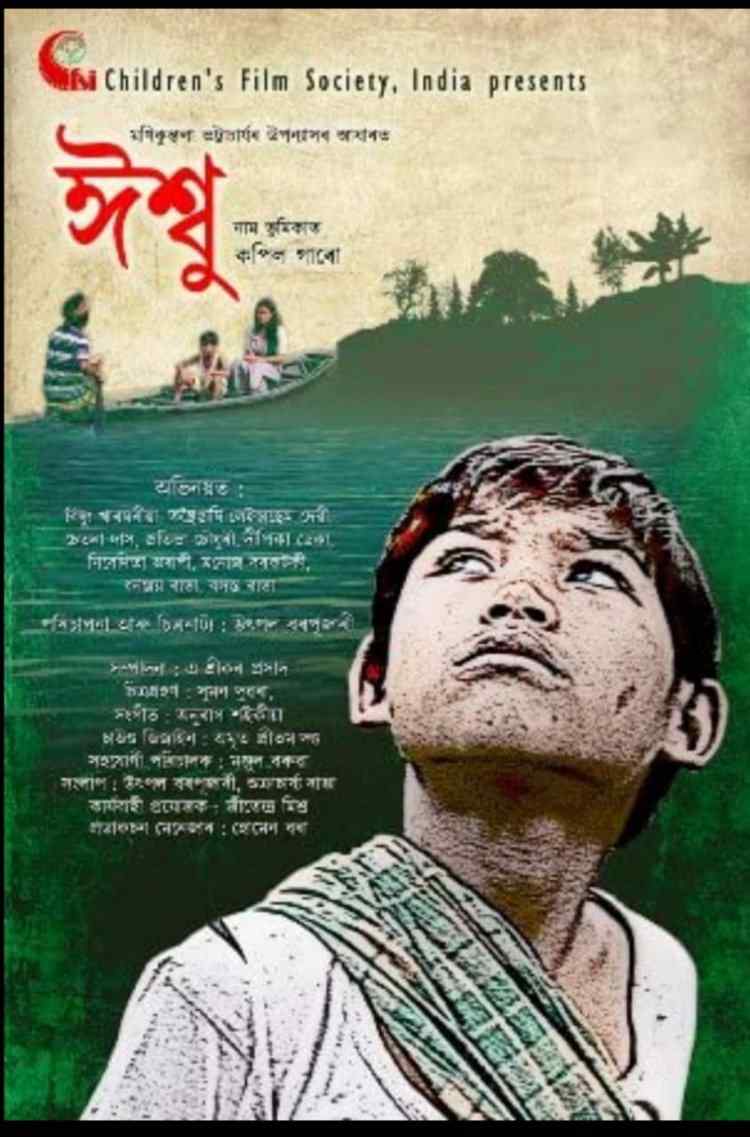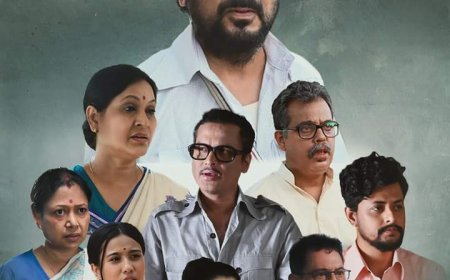ISHU - Movie Review
ISHU - Movie Review

Directed by critic turned filmmaker Utpal Borpujari, Ishu follows the everyday life of Ishwar Prasad Rabha (Ishu) which is severely affected by the unnatural events taking place in his village and the unusual developments surrounding him. The ideas, beliefs and faith of the grown-ups become increasingly bothersome for this 10 year old whose upright innocence is the driving spirit of his life. For a boy who finds the utmost happiness of life in cuddling his dog, walking to school with his mates while picking fruits and berries on the way, skipping mathematics, and playing in the riverside mud, life takes a drastic turn when he witnesses a rough quarrel between his relatives over a boundary fence. An honest and curious Ishu immediately questions the strange nature of the adults fighting over such pointless issues. The distraction is elevated even further when Ishu and his friends stumble upon the local bez while on their way to school. The quack warns them of a great danger approaching their village and asks them to be cautious and alert. Ishu also likes to spend time listening to stories from his favorite Aunt while collecting herbs in the wild. But this happy world of Ishu comes crumbling down when his favorite aunt (Ambika) is branded as a witch following a dream and the death of his new born sister.
Utpal Borpujari’s visual style takes hold early on as he perfectly sets up the mood and atmosphere of the film. By effectively employing sand animation art to show the dark and mysterious past of the village, Ishu foreshadows the unnatural themes it seeks to tackle. Based on Manikuntala Bhattacharya’s novel of the same name, the movie devotes effort to bring social evils like practice of superstitions and witch-hunting into focus which is very dominant in the interior villages and societies of Assam. These places untouched by any scientific and technological revolution still rely on home birth, traditional medicines and maintain a strict adherence to age old customs and superstitions. The few enlightened and the educationally qualified ones who raise their voice against these atrocities and injustice are considered as a threat to their culture and integrity. If the negligence of the government and the administration is one fault, lack of proper education, exposure and an uncompromising attitude of the local inhabitants are some other reasons of their social backwardness. The village primary school runs in the lack of sufficient teachers where one teacher often has to substitute the absence of the other. Even worse is the condition of the nearest health centre which lies vacant in tragic and dilapidated condition. It is the courage and boldness of a small boy who challenge these rigid beliefs and structural inequalities and drives the narrative of Ishu forward.
Weaving a handful of characters into a web of uncertainty that threatens them all, writer-director Borpujari and editor A Sreekar Prasad, handles the movie with such grace and unsophisticated gesture that the children or any viewer for that matter can effortlessly understand the depths and seriousness of the issue without being subjected to extreme brutality or disturbing violence. Coming out in his usual style, Anurag Saikia’s pulse pounding music contributes to the impact and reaches its haunting peak when Ambika is violently dragged away from her house by the villagers after she’s accused of practicing witchcraft. A daring and iron-willed woman who fearlessly dodged a tiger attack once fall prey to the merciless assault and inhumane prosecution of the people who holds her responsible for the misfortunes in the village. In this process, Ishu also stands exposed to some contrasting facets of human behavior in the form of affection, jealously, and selflessness among evil disposition which resonates in his mind long after the tragedy comes to an end.
The cinematography by Sumon Dowerah is natural and communicates in subtle ways. In one prolonged sequence, Ishu stares at the other side of the river where his village lies with Dowerah’s camera facing the boy’s back as he thinks of ways to cross the river. The scene beautifully captures the reflection of the hills and trees of his homeland on the river. The inverse image can be interpreted as one way of conveying that the world situated that side is composed of some converse values far from wisdom and insight. Ishu features a talented host of actors including Tonthoingambi Leishangthem Devi, Bishnu Kharghoria, Chetana Das, Pratibha Choudhury, Monuj Borkotoky and others. The actors have lived their parts with their accent and costumes done right, but it is Kapil Garo, the soul of this film, that shines and steals the show. The little lad has brought in an innocent charm while also delivering on his acting abilities. However, it is Mahendra Rabha who has previously showed promise in Maj Rati Keteki as the shy, introvert kid that is wasted here.
Produced by Children's Film Society of India, Ishu’s short duration helps but the climax is conventional. It pleases the children (its primary target audience) with its traditional ‘goodness triumphs over evil’ conclusion, but however, if we care to look beyond, it also leaves important thoughts for us to ponder upon. Ishu is that positive change in society which when embraced will find its own way to set the path and right the wrong. Ishu gives us a positive end which not only satisfies but also invokes us to question the bigger picture of our society, where the concern isn’t just limited to one Ishu and one aunt.
What's Your Reaction?

































































